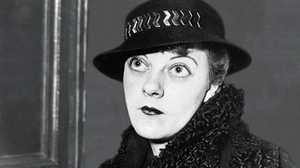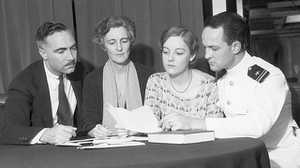The Men Accused of Assaulting Thalia Massie

In the early morning hours of September 13, 1931, Navy wife Thalia Fortescue Massie told the Honolulu police that she'd been hauled into a car, driven down Ala Moana Boulevard, beaten, dragged into the brush, and raped by four or five men. Within twelve hours, police had rounded up five suspects, all from the working class neighborhoods of Kalihi-Palama. The young men, two Native Hawaiians, two Japanese, and one Chinese-Hawaiian, would become known as the "Ala Moana boys."
The Usual Suspects
The two largest newspapers in Hawai'i labeled the suspects "thugs," "fiends," and "gangsters." Though she had previously blanked on any identifying details, Thalia Massie suddenly recollected Horace Ida's license plate number, which was probably fed to her by someone in the Honolulu police department. The papers printed the boys' photos and addresses and cited their police records without explaining the outcomes of the prior charges. The five young men certainly were not angels in the community, but they quickly became demons in the papers.
Joseph Kahahawai
Joseph Kahahawai, a 20-year-old Native Hawaiian, was the leader of a loose association of boys who called themselves the "School Street gang." Kahahawai, nicknamed Kalani by members of his St. Louis College football team, grew up in a section of Honolulu called Iwilei, a working-class area with a red light district. He never finished high school at St. Louis College, but he wore his football ring proudly, even on the day he was killed. At the time of Joseph's death, Kalani's family lived in a small house on School Street, in the Palama district of town, within blocks of the other boys.
Ben Ahakuelo
Ben Ahakuelo, also a 20-year-old Native Hawaiian, had already made a local name for himself. His football skill earned him the nickname Flash Ahakuelo, and his boxinf talent won him a place representing Hawai'i in the National Amateur Boxing Championship Tournament of 1931 in Madison Square Garden, New York.
Horace Ida
Horace Ida, a 24-year-old man of Japanese descent, had just returned to Hawai'i to help his mother and sister around the house. He had been living in California, hoping to find a job. It was the first time he had been back to Honolulu since his father's death in 1929. Horace's real name was Shomatsu, but his classmates had nicknamed him Shorty. It was Horace's car that would implicate all five suspects in the Massie case.
Henry Chang
Henry Chang, a 22-year-old who was part Native Hawaiian and part Chinese, had recently returned to Hawai'i from a job working on a salmon farm. His parents needed him home to help tend the cows and chickens on their farm, and he returned after working thirteen months in Alaska.
David Takai
David Takai, a 21-year-old of Japanese descent, was the only suspect that Thalia failed to identify. Called Mack by his friends, Takai lived close to the other boys in the Palama district, and like the others, struggled to find work in the tough times of the Great Depression.
Taken for Criminals
After high school, the young men had shifted from job to job in the fruit canneries or on the island's docks. When between jobs, they often passed their hours on the Kauluwela playground or hanging out in front of the neighborhood beer joints. Their individual criminal histories varied. The newspapers reported Joseph Kahahawai was guilty of robbery, when in fact he had never been convicted. A mistrial had been declared and rather than submit to another trial, he had agreed to plead guilty to assault and battery. Ben Ahakuelo was described as a "convicted rapist" despite the fact that he had been neither charged with nor convicted of rape. He and Henry Chang had been involved the year before in a case that was first charged as attempted rape and eventually brought down to fornication after the complainant admitted that she'd been a willing participant. The two had spent four months in jail before the complainant came forward with her admission, and the parole board accepted their request for immediate release in light of the new information.
Trial and Vengeance
The boys' case went to trial in November 1932 and ended a month later in a mistrial. After 97 hours of deliberation, the jury had been unable to reach a verdict; no evidence conclusively tied the five to any crime involving Thalia Massie. A week later Horace Ida was kidnapped by Navy men. Trying to force a confession, they beat him with belt buckles. In early January, Grace Fortescue and Tommy Massie, still in search of the confession that would clear Thalia Massie's name, kidnapped Joseph Kahahawai. While questioning him, one of the kidnappers shot and killed the young Hawaiian.
Changed Lives
In the end, Thalia's fabricated story cost the five suspects dearly. Joseph Kahahawai was murdered. Horace Ida bore scars from belt buckles, and Ben Ahakuelo, Henry Chang, and David Takai lived in the shadow of the case until their deaths.







